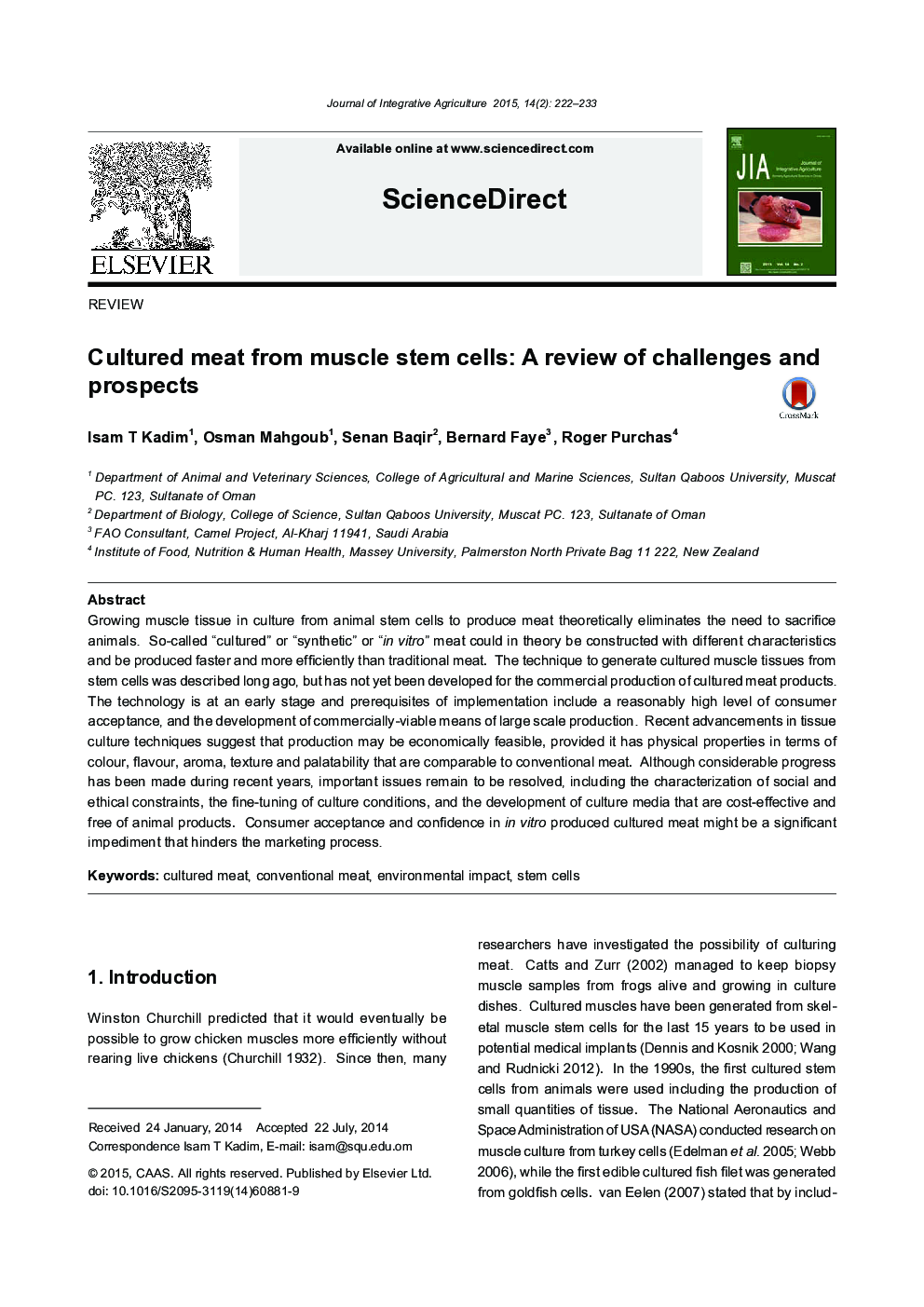| Article ID | Journal | Published Year | Pages | File Type |
|---|---|---|---|---|
| 4494378 | Journal of Integrative Agriculture | 2015 | 12 Pages |
Growing muscle tissue in culture from animal stem cells to produce meat theoretically eliminates the need to sacrifice animals. So-called “cultured” or “synthetic” or “in vitro” meat could in theory be constructed with different characteristics and be produced faster and more efficiently than traditional meat. The technique to generate cultured muscle tissues from stem cells was described long ago, but has not yet been developed for the commercial production of cultured meat products. The technology is at an early stage and prerequisites of implementation include a reasonably high level of consumer acceptance, and the development of commercially-viable means of large scale production. Recent advancements in tissue culture techniques suggest that production may be economically feasible, provided it has physical properties in terms of colour, flavour, aroma, texture and palatability that are comparable to conventional meat. Although considerable progress has been made during recent years, important issues remain to be resolved, including the characterization of social and ethical constraints, the fine-tuning of culture conditions, and the development of culture media that are cost-effective and free of animal products. Consumer acceptance and confidence in in vitro produced cultured meat might be a significant impediment that hinders the marketing process.
